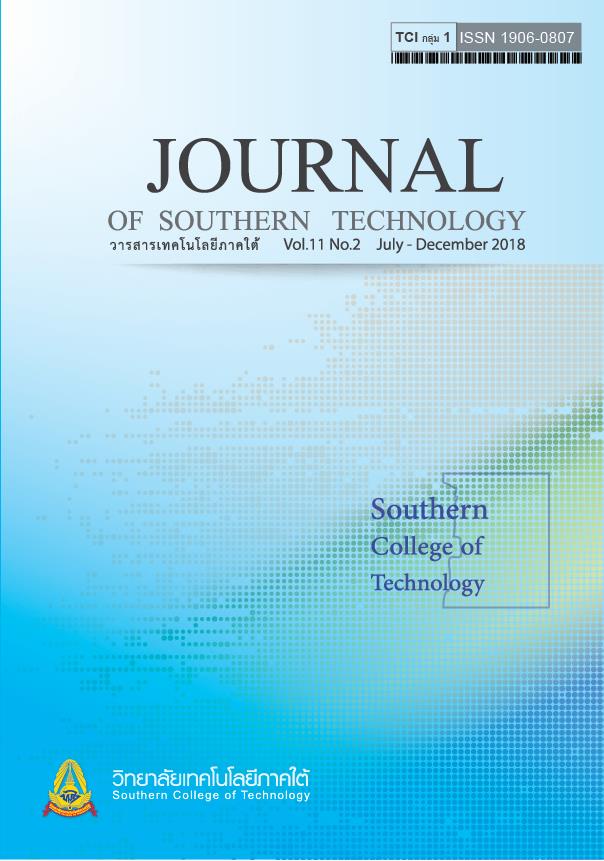Size and Mean to Reduce Transaction Costs of Opportunistic Behavior: Case Study in the Dropped and Repeating Courses
Main Article Content
Abstract
The objectives of this research were to examine the size of transaction costs of opportunistic behavior in the dropped and repeating courses, and to find out mean to reduce the transaction costs of opportunistic behavior. In this study, the sample included those students who ever dropped the courses during the year 2009-2015 in Law for Economists (60 students), Evolution of Economic Thought (87 students), Introduction to Econometrics (32 students), and Microeconomics 2 (101 students). The Dualism interaction of the stakeholders in courses was adopted, including the interviews, numeric recording and use descriptive statistics in percentages. The data were processed and analyzed to draw a conclusion. After then, the design of the transaction cost reduction was carried out with the students who enrolled Law for Economists (25 students), Evolution of Economic Thought (23 students). To reduce the transaction costs of opportunistic behavior on education, the following must be engaged; students are enabling access to data and information quickly and easily, and they are self-practiced in association with learning, practice by self-learning from the starting information’s flow to the destination information’s flow dramatically in the form of practice guide and online learning resources, resulting that the transaction costs of opportunistic behavior reduced from 810 minutes to 271 minutes and reduced from 369 Baht to 99 Baht on Law for Economists. In Evolution of Economic Thought, the transaction costs reduced from 234 minutes to 79 minutes and reduced from 141 Baht to 21 Baht.
Article Details
-
Authors must agree to the journal publication rules and allow the editors to edit the manuscripts for publication.
-
Author’s right belongs to the author but Journal of Southern Technology holds the right of first publication and thus allow readers to use the article for the purpose of education but not commercial.
References
Belkina, N. (2012). Effect Opportunistic behavior of workers Enterprises for the realization of their labor Potential. N.A Belkina, O.A Antonova. Proceedings of the Volgograd State Technical University, 13, 42-50.
Garifova, L. F., Kundakchyan, R. M., & Pratchenko, O.V. (2014). Integral estimate of socio-ecological-economic factors on the quality of life of population of the region. Mediterranean Journal of Social Sciences, 5(12), 117-121.
Mamaeva, L. (2009). Institutional Economics. The Publishing and Trading Corporation. M: Dashkov and Co.
Oleinik, A. N. (2000). Institutional Economy. Moscow: INFRA-M.
Popov, E.V. (2007). Evolution of the Institutions of Minieconomics. M.: Science.
__________. (2011). Transactions. Ekaterinburg: IE Uro. RAN.
Popov, E., & Simonova, V. (2007). Opportunism of Economic Agents. Ekaterinburg: IEH
UrO RAN.
Shchitova, A. N. (2014). Objective reasons for opportunistic behavior of economic entities [Text]. A. N. Shchitova. Innovative Economics: Materials of the International. Sci. Conf. (Kazan, October 2014). Kazan: Buk, 124-127.
Suwan-achariya, C., & Latae, K. (2017). Reducing Transaction cost of Learning Economics by Information Technology. Songkhla, Thaksin University. [in Thai]
Troshina, K. (2014). The problem of opportunism of managers and management mechanisms opportunistic behavior. Young Scientist, 8, 605-610.
Williamson, O. I. (1996). Economic Institutions of Capitalism: Firms, Markets, "Relative" Contracting: Trans. With the English. Y. Blagova, VS Katkalo, DS Slavnov,Y.V. Fedotova, N.N. Tytovich-St. Petersburg: Lenizdat; CEV Press.
